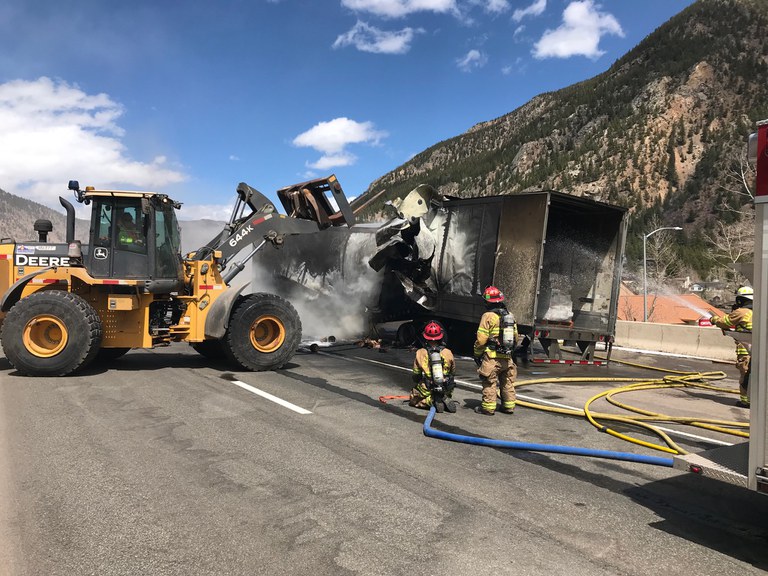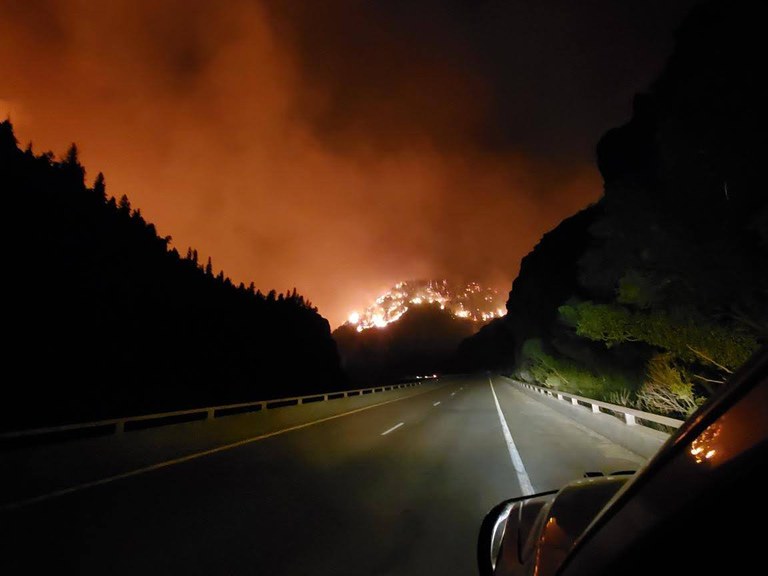Incident Management
Rockfall and avalanche mitigation, the Safety Patrol Program and more.

What is Traffic Incident Management, and why should you care?
Sometimes it may feel like our state is out to get us. Between wildfires, blizzards, avalanches and flooding, our majestic state’s geography and weather can pose some serious challenges and dangers — especially to roadway users and our transportation infrastructure.
Add in traffic crashes, vehicle breakdowns and semi-truck rollovers and it often feels like you're more likely to encounter a problem on the roads than not. It would sure be nice to have an army of highly trained experts at the ready to respond to all of these incidents. Lucky for us, we do. CDOT has an entire division devoted to incident management — and by management, we mean prevention and response. We do a lot more than you think.
The Safety Patrol Program
One branch of CDOT’s incident management effort is the Safety Patrol Program. Safety patrols offer free roadside assistance for many of the more common issues we see on the road. Think flat tires and breakdowns on the highway shoulder. Our patrollers don’t just want to keep you safe and help you get on your way — they want to clear incidents as quickly as possible to keep traffic flowing freely.
Our Safety Patrol Program will refuel your car, fix flat tires, and move you safely to the shoulder if your vehicle is in harm’s way. We’ll give you a jump, too, and even help if you get locked out of your car.
CDOT also provides backup to Colorado State Patrol (CSP) and cleans debris off the road so you don’t have to dodge blown up tires or something that fell out of the back of a pickup truck.
The Safety Patrol Program is sponsored by our friends at Geico and is available in the Denver metro area and on other sections of Colorado highways during peak travel times throughout the week. To learn more about the CDOT Safety Patrol Program online here.
Traffic Incident Management
When it comes to bigger incidents like major crashes, rockfall and avalanches, CDOT’s Traffic Incident Management (TIM) teams are ready 24/7 to respond quickly, protect anyone at risk, and help restore traffic flow as quickly and safely as possible. We have three operations centers across the state and rely on hundreds of devices to monitor traffic flow and watch for incidents large and small. Our dispatch teams at those centers coordinate emergency response, can open or close traffic lanes, and communicate with law enforcement (among many other duties).
These efforts can help prevent the risk of secondary events or keep other motorists from being involved in the first place. At CDOT, we have everybody’s safety in mind.
CDOT Fire Response
It’s not common knowledge, but we are also skilled in firefighting and wildfire operations. We have our own fire trucks and highly trained personnel to respond to things like tunnel fires and chemical spills. We can even haul water, push down trees and build fire breaks if wildfires threaten our roads.
“We’ve been utilizing CDOT equipment and manpower to help fight fires across the state for decades,” says Jori Ernst, CDOT emergency and incident management program manager. “The Marshall Fire in 2022 is one I’ll never forget. I’m so proud of our responders and all the hard and dangerous work they did in what was an extreme situation.”

CDOT incident response is here to help.
Using bulldozers, cranes, helicopters, fire trucks, a whole lot of technology and more, we have the tools and the knowledge to stand up to all our state can throw at us. Want to be part of the action? Check out CDOT’s careers page to join the Division of Maintenance and Operations today!
